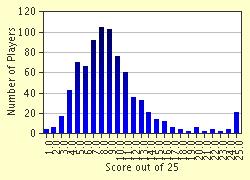Quiz Answer Key and Fun Facts
1. Beijing-man, homo erectus, was the earliest remains found in China. In what cave were the remains unearthed, in 1930?
2. Which Egyptian king ruled for the longest period?
3. Who lived ca. 551-479 B.C. and authored the 'Lunyu'?
4. What did the Kahun and Ebers papyrus, circa 1850 B.C., deal with?
5. What civilization is considered the oldest in the world?
6. What is the oldest work on philosophy, which was completed some time between 2880 - 2300 B.C.?
7. Who was the Babylonian king that unified the northern border of Sumer and established the capital at Akkad around 2371 B.C.?
8. During India's Heroic Age, ca. 1000-500 B.C., what class of people were on the highest caste?
9. Whose death signified the beginning of the middle ages for India, until her unification by Babur?
10. What is the name for the civilization that existed from 1200 - 300 B.C. and occupied the area later dominated by the Incas?
11. Babylon, 'Gate of God', was founded, according to myth, by the god Marduk who received a book on philosophy from a half-fish creature. What was the name of this creature?
12. What was the name of the set of Babylonian codes written on black diorite with 282 articles of conduct, ca. 1751 B.C.?
13. What principality laid down the administration of China, and helped coalesce the broken country into one nation ca. 200 B.C.?
14. The I-Ching, Book of Changes, was written by a prisoner in jail. He took the 8 trigrams invented by Fu Hsi, and expanded it to 64. He was also the founder of the Zhou Dynasty. Who was he?
15. What is the name of the neolithic village on Orkney island that was unearthed by a great storm in 1850?
16. Which ancient people under King Mursilis I sacked Babylon in 1595 B.C.?
17. Which Egyptian king was Tutankhamen's father?
18. Where did the first European state emerge ca. 2000 B.C.?
19. The Urnfield culture emerged within the boundaries of what modern country ca. 1350 B.C.?
20. Tyre, Sidon and Byblos were all ancient cities of what civilization?
21. Which civilization used what we now call 'Linear A' script?
22. What was the latest period of the Japanese Jomon culture called?
23. Which biblical king captured Jerusalem and made it his capital?
24. The world's oldest pottery culture existed in what is now which modern country?
25. What was the oldest and largest city of ancient Sumeria?
Source: Author
thejazzkickazz
This quiz was reviewed by FunTrivia editor
bloomsby before going online.
Any errors found in FunTrivia content are routinely corrected through our feedback system.


